Philosophy
For us, it’s not about the honey – although we sure do love it! It’s really about the bees. Honey is simply a measure of the successes and failures we experience trying to create the right balance for our bees to prosper. The fact that honey is one of the healthiest foods known to man makes it that much better!
 Honey bees have existed for 30 million years and were imported into North America by European settlers. Today’s headlines continually remind us they are now rapidly becoming an endangered species. Less than 5% of all bees in the US are feral bees–bees that live in the wild. The remaining 95% are under the care of beekeepers, wherein lies part of the problem.
Honey bees have existed for 30 million years and were imported into North America by European settlers. Today’s headlines continually remind us they are now rapidly becoming an endangered species. Less than 5% of all bees in the US are feral bees–bees that live in the wild. The remaining 95% are under the care of beekeepers, wherein lies part of the problem.
Bees are considered an agricultural product and like many of our food sources today, they too, are suffering from the effects of the agri-chemical industry.
Modern farming often means vast acres of monoculture–where only one crop is grown, i.e. almonds, corn or soybeans. Often, the crop seeds are coated with neonicotinoids, a specific class of pesticides that are sprayed directly onto the seeds. Some researchers, environmentalists, and commercial beekeepers consider this recent class of pesticides to be the new DDT and a contributing factor in Colony Collapse Disorder. Monoculture limits the variety of food sources bees require to remain healthy, while studies show the neonics disrupt the immune systems of bees, making them susceptible to diseases to which they were previously immune. Additionally, chemicals to keep our lawns green and weed-free, antibiotics that beekeepers use to prevent mites from attacking the lungs and organs of their bees, and transporting bees long distances to pollinate crops all put an enormous stress on such a beneficial–and critical–part of our ecosystem.
At Honey Meadow Farm, we create as natural an environment for our bees as possible. Our 10-acres in Westmoreland, NH follow strict organic protocols and are registered as a Natural Wildlife Habitat by the National Wildlife Federation.
We stopped using non-organic fertilizers, pesticides and plant supplements in 2004. Our entire property, including our orchard, vegetable, raspberry, blueberry, and flower gardens are entirely organic and make great foraging for our bees. 2014 started our development of native pollinator habitat at Westmoreland and on our 40 acres in Sullivan, NH (also treated organically). That same year, we also started our experiment in holistic orcharding in Westmoreland–creating additional safe sources of pollen and nectar for our honey bees and New Hampshire’s native pollinators. Please know we only use soft, certified, organic treatments to help our bees fight the deadly varroa mites. That being said, bees may forage anywhere within a 2-3 mile radius of their hives so we cannot claim our honey to be organic. However, much of the 8,000-12,000 acres our bees may visit is woodland and undeveloped fields, giving both the bees and us a wonderful supply of all natural honey.
